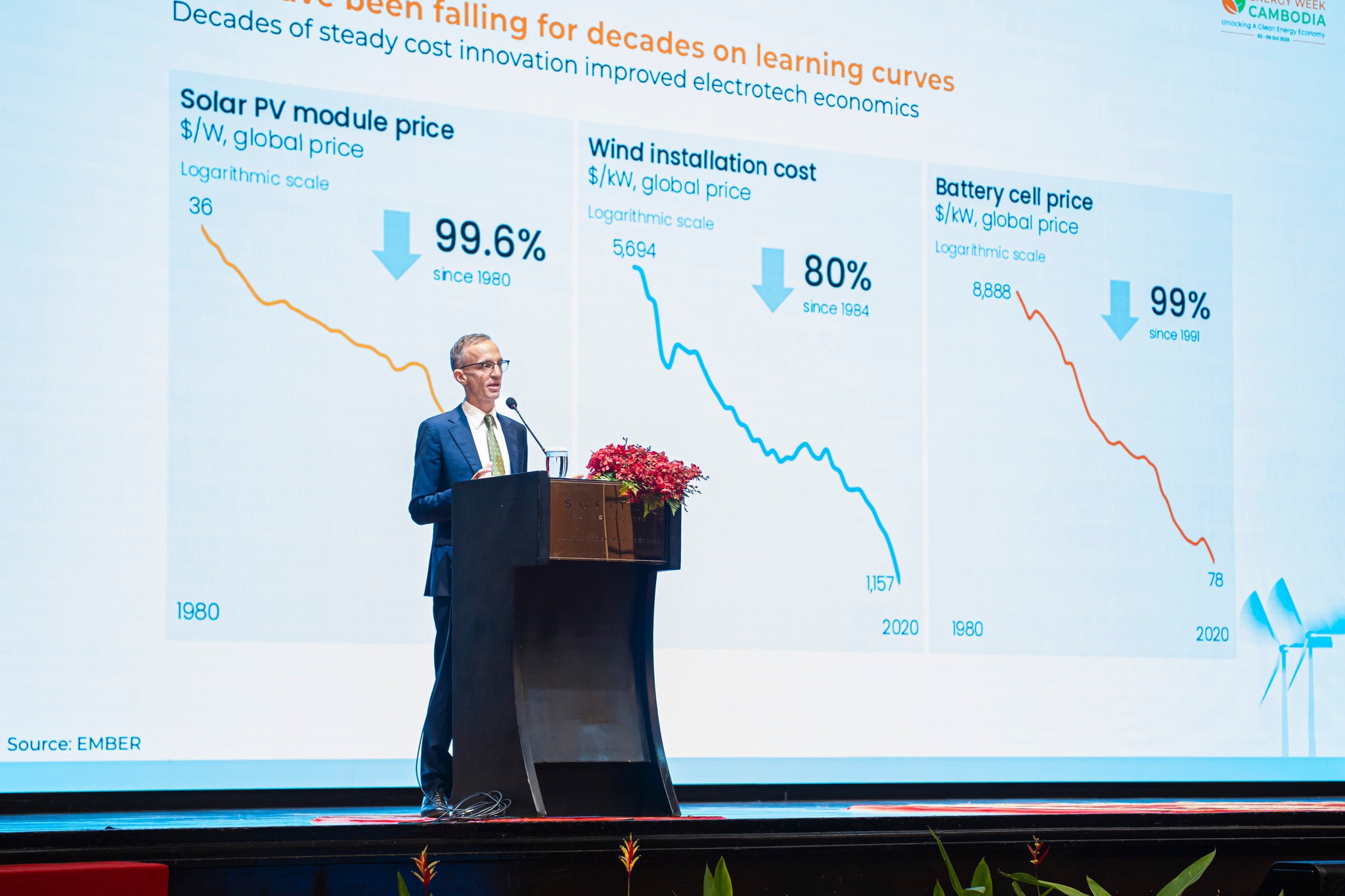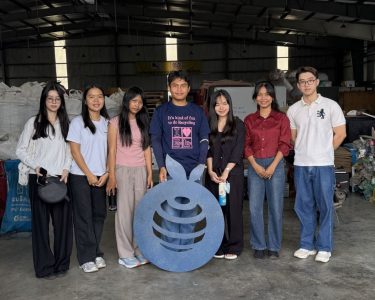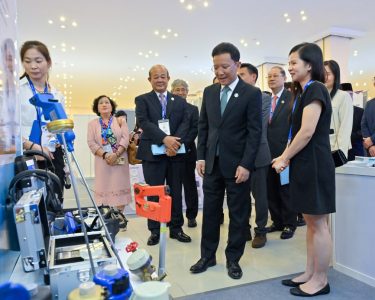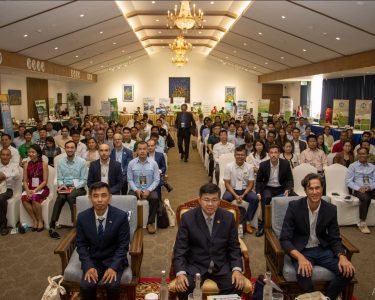Cambodia Investment Review
Cambodia’s clean energy transition took center stage this week as policymakers, investors, and development partners gathered for Clean Energy Week 2025, organized by EnergyLab Cambodia. The event underscored both the vast opportunities and the sobering challenges in transforming the Kingdom’s energy system into one that is competitive, sustainable, and investment-ready.
A Vision for Smarter, Sustainable Growth
At the Clean Energy Summit, Hem Vanndy, Minister of Industry, Science, Technology and Innovation, urged Cambodia’s industries to embrace renewable energy as the cornerstone of future growth.
“Clean energy is no longer an alternative; it is the imperative,” he said. “To remain competitive, Cambodia must embed clean energy into every factory, every supply chain, and every industrial policy.”
Vanndy said renewables such as solar, hydro, and wind can lower costs for manufacturers and make “Made in Cambodia” products more attractive to global brands increasingly demanding sustainability in their supply chains. Yet, he cautioned that the shift must go beyond rhetoric. “Our energy system must evolve from simply providing power to providing power smartly, sustainably, and strategically,” he added.
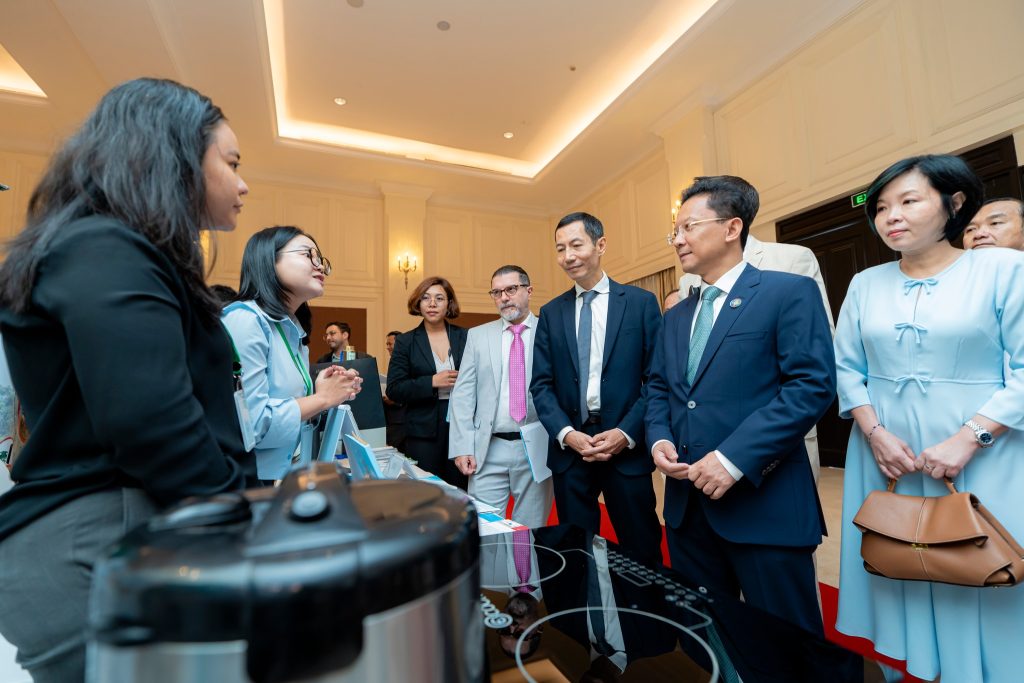
Backing from Partners, But Financing Challenges Persist
Australian Ambassador to Cambodia Derek Yip reaffirmed Australia’s long-term support through the Cambodia-Australia Partnership for Resilient Economic Development (CAPRED), highlighting new initiatives to improve renewable energy forecasting and grid management.
“We’re working closely with the Royal Government to strengthen the country’s capacity to integrate variable renewable energy,” Yip said. He also announced the Cambodia Climate Financing Facility, expected to unlock around $350 million for climate-friendly investments.
UNDP Resident Representative Enrico Gaveglia said Cambodia’s clean energy transition holds the key to achieving its sustainable development ambitions but warned of the capital intensity of the shift. “UNDP stands ready to support the Royal Government in mobilizing green finance and de-risking what is certainly a major transformation,” he said.
Investors Weigh Opportunities Against Practical Hurdles
EnergyLab Asia’s Regional Director, Natharoun Ngo Son, described Cambodia’s renewable drive as a “generational opportunity” to reshape its economic competitiveness and attract new capital. “Cambodia can show it’s ready to lead in the new clean energy paradigm,” he said.
Chhe Lidin, Undersecretary of State at the Ministry of Mines and Energy, highlighted significant progress, with 99 percent of villages and 95 percent of households now connected to electricity. “Renewable energy and energy efficiency initiatives form the cornerstone of Cambodia’s energy policy,” he said.
However, analysts noted that scaling solar and wind capacity will require major investment in grid modernization and pricing reform to make renewable projects financially viable.
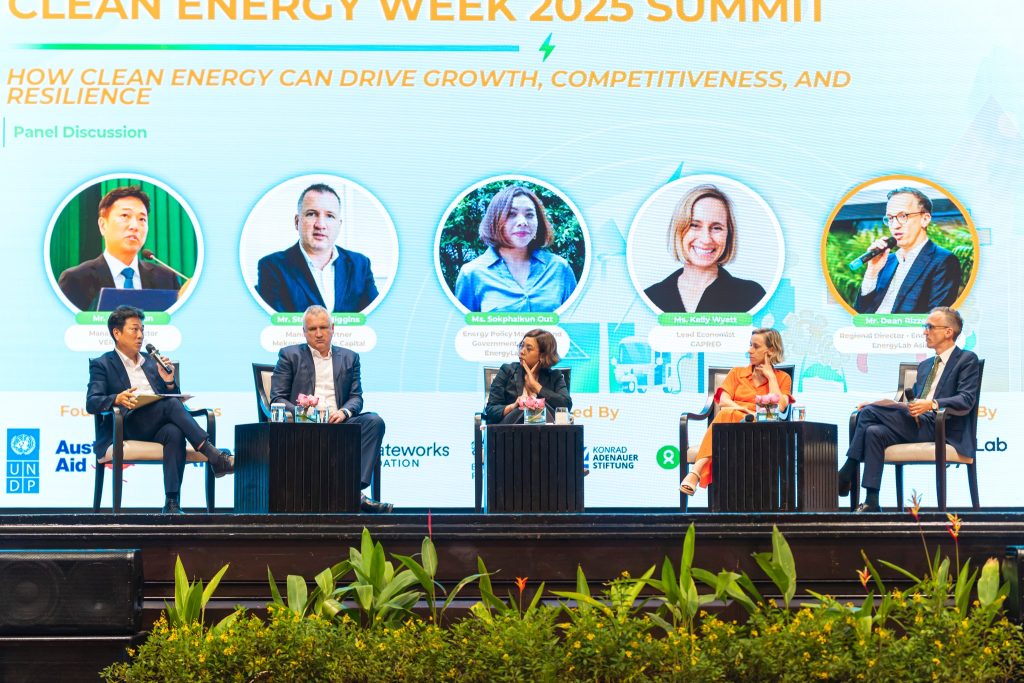
A Balancing Act Between Ambition and Execution
Under the theme “Unlocking a Clean Energy Economy,” Clean Energy Week 2025—organized by EnergyLab Cambodia in partnership with the Ministry of Mines and Energy, and co-founded by Australia and the United Nations Development Programme—runs until October 9.
The series of events aims to highlight how clean energy can drive Cambodia’s industrial and investment future while strengthening key sectors such as manufacturing and tourism.
While optimism ran high, many participants agreed that success will depend on aligning policy, finance, and technology to move from ambition to implementation. As Cambodia’s clean energy narrative evolves, the global investment community will be watching closely to see whether this optimism translates into long-term, sustainable growth.


